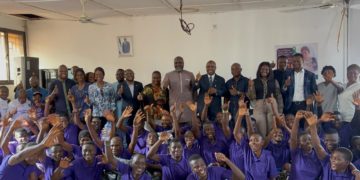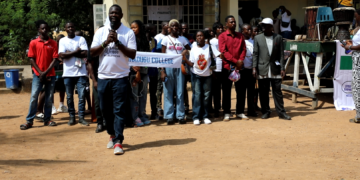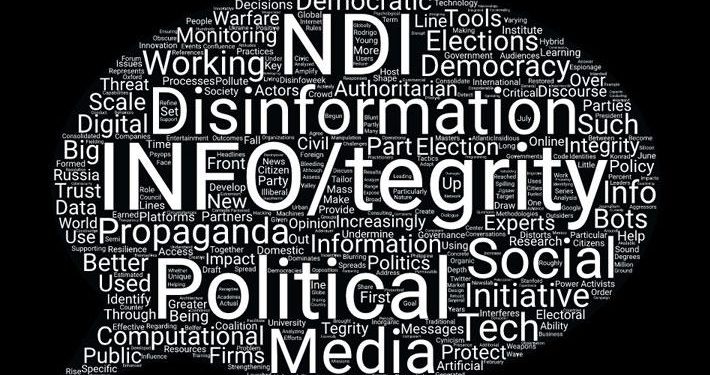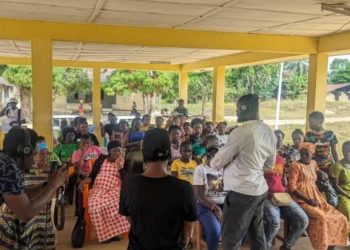A conference on disinformation ended on Saturday in the Liberian capital, Monrovia with calls for a multi-sectoral approach in combating the phenomenon.
The three-day event organized by the National Democratic Institute (NDI) brought together representatives from organizations working on countering disinformation and hate speech from across Africa, with the goal of deriving a collective approach that will foster and enhance information sharing across member organizations.
The participants came from mainly eight countries in Central and West African regions – representing organizations like the Center for Democracy and Development (CDD) of Nigeria, the Sierra Leone Association of Journalists (SLAJ), and Innovation Lab Liberia (iLab Liberia).
Other participants came from Burkina Faso, Mali, Côte d’Ivoire, Senegal, and the Democratic Republic of Congo. These countries are either heading for elections or are just emerging from them.
The conference was designed to examine how disinformation and hate speech undermine the electoral process, and how civil society and media organizations can analyse the election environment and take action to address threats to electoral integrity in the respective countries.
“Influencers and amplifiers with political or nefarious backing have consistently used disinformation and hate speech as tools to undermine information integrity, including electoral and democratic systems across the region,” NDI, a US-based non-profit, said in a statement ahead of the event.
The participants explored tactics common in harmful information campaigns in the region and carefully examined obstacles in combating them. They also discussed tools and methodologies for monitoring the online space, sharing their own achievements and case studies related to online monitoring and reporting in the region.
The deliberations in the course of the three days – July 27 to 29 – highlighted the disproportionate impact of disinformation and hate speech on women and other marginalized communities, with participants demonstrating how these harmful practices exacerbate religious, ethnic, and regional divisions, and erode citizens’ trust in elections and democratic processes.
Kenyan activist, Irene Mwendwa, spoke about the impact of disinformation and hate speech on electoral processes and explored ways civil society and media organizations can address threats to electoral integrity in their respective countries.
Mwendwa, who is Director of Strategic Initiatives at Pollicy, a feminist organization in Kenya, touched on common tactics employed in harmful information campaigns and critically assessed the challenges in countering them.
Sandra Pepera, Director of Gender, Women and Democracy at NDI, spoke on gender stereotypes and misogyny online, pointing out various impediments faced by women, particularly in politics.
She urged the participants to ensure that they fully understand the nature of the challenges involved and seek to collectively address them at various levels.
“We cannot just focus on empowering women; we have to work on the other layers. We have to understand the nature of the challenge and address it at each respective layer,” she said.
While speaking on legislation, Pepera argued that although women clamour for cyber security laws, they must be cautious, noting: “Bad legislation is worse than no law at all.”
Two of the participating countries – Sierra Leone and Nigeria – just emerged from elections, and their delegates shared experiences with the other countries that are heading for elections, including the host nation.
Sierra Leone was represented by two senior journalists and disinformation and hate speech crusaders – Christian Conteh and Mabinty Kamara, Editor of Politico Newspaper.
Conteh made a presentation on behalf of SLAJ President Ahmed Sahid Nasralla, highlighting how Sierra Leone is addressing the pressing challenges posed by disinformation and hate speech and shedding light on their impact on the country’s electoral procedures. He also touched on the country’s experience with its Cyber Security and Crime Act passed in 2021, cautioning other countries against making laws that stifles freedom of speech.
“The SLAJ presentation shared insights into Sierra Leone’s political and electoral landscape, providing a concise historical overview and outlining the key elements of our electoral process,” Conteh told ManoReporters from Monrovia.
SLAJ is currently running two initiatives geared towards countering fake news. One of them – the SLAJ/NDI SuperNewsRoom – is funded by NDI. There is also the UNDP funded SLAJ I-Verify. Both initiatives entail fact-checking in real time, in the context of the just concluded general elections.
Conteh described the conference as “a truly enriching” experience that will have a potentially positive impact on the other participating nations.
“We learnt a lot from our colleagues, especially Nigeria, since they had elections before us and their nation is much more diverse considering the population and the various issues they have to contend with in their information space. Liberia learnt a lot from us since they are preparing for elections that are just around the corner,” said Conteh.
“Everyone learnt from Sierra Leone since we have one of the newest legislations to regulate cyber space, something which Liberia seeks to do,” he added.
Among others, the conference ended with calls for advocacy organizations to fight for the enactment of legislations geared towards combatting disinformation and hate speech. The participants were also urged to consider inclusion, especially of marginalized groups like women and persons living with disability in the fight against disinformation and hate speech.









![Niger army spokesman Colonel-Major Amadou Abdramane speaks during an appearance on national television, after President Mohamed Bazoum was held in the presidential palace in Niamey, Niger, July 26, 2023 [ORTN via Reuters TV]](https://manoreporters.com/wp-content/uploads/2023/07/Niger-coup-leaders-75x75.webp)












